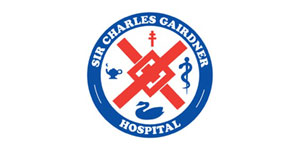Skip to content
- Remove the dressing on the day after the surgery. Take the band-aid off and remove the cotton ball. There is often a small sponge inside the ear canal. Leave this in.
- Change the cotton ball as needed to catch any blood draining from the ear. Some drainage is normal after surgery. If it becomes profuse or foul-smelling, call the office.
- Beginning on the second day after surgery, try to leave the cotton out of the ear as much as possible. If the ear is draining, replace the cotton as needed to keep blood from running onto your neck and clothes.
- Do not get water into the ear canal for four to six weeks after surgery. When showering or washing your hair, place a piece of cotton coasted with Vaseline into the ear canal to prevent water from entering the canal.
- The small incision behind the ear should be kept dry for three to five days after surgery. The stitches will be removed by the doctor at your post-operative visit.
- Some dizziness, nausea and vomiting are normal for three days after surgery. If the dizziness becomes severe, call the office. It is normal to experience mild dizziness when moving your head for several weeks after surgery.
- Immediately after surgery, the ear may feel very plugged and the hearing may be very muffled due to packing in the ear canal. Improvement in hearing is not expected for four to six weeks after surgery. If there seems to be a TOTAL loss of hearing (complete deafness) after surgery, call the office immediately.
- Popping sounds, echoing, a plugged sensation, ringing or fluctuating hearing may be noticed during the healing process.
- Keep your head elevated as much as possible. For the first three nights sleep and rest on two or three pillows.
- Do not blow you nose for three weeks after surgery. If you must sneeze or cough, do so with your mouth open.
- For four weeks after surgery, do not lift anything heavier than 9 kilos, do not strain or bend over, or perform any vigorous physical activity. No airplane travel or dental work for a minimum of eight weeks after surgery.
- It is common to experience a metallic taste or sensation of tongue numbness after surgery. This is usually temporary but can last for several weeks to months. It is rarely permanent.
- You should have an appointment to be seen 7-10 days after the surgery unless otherwise instructed by the doctor.
- If you have any questions or concerns, please call the office on 9300 9800











